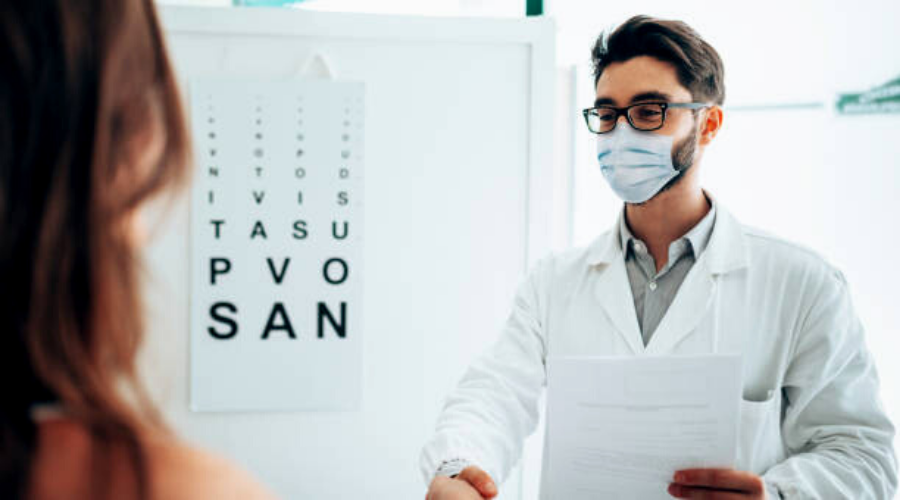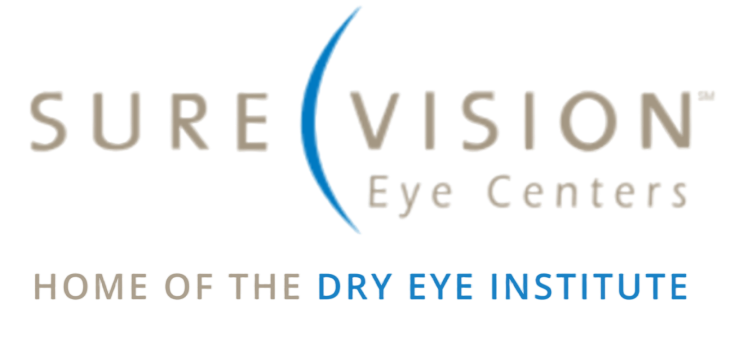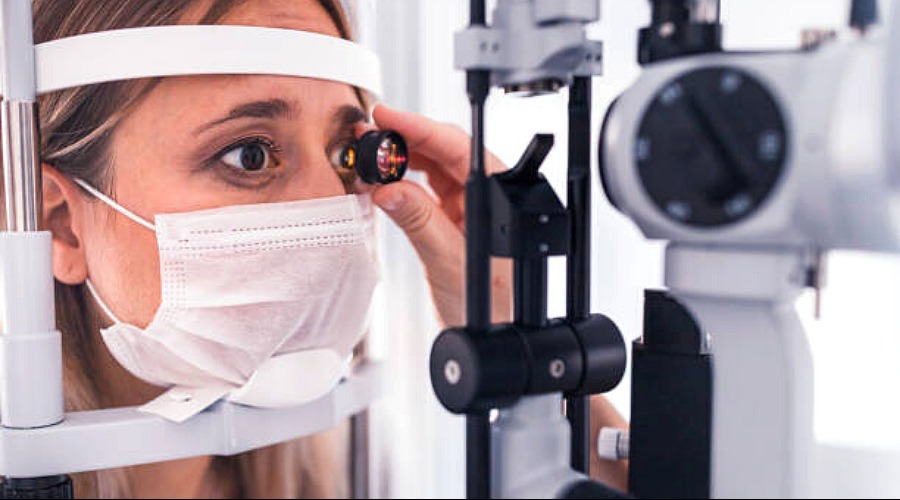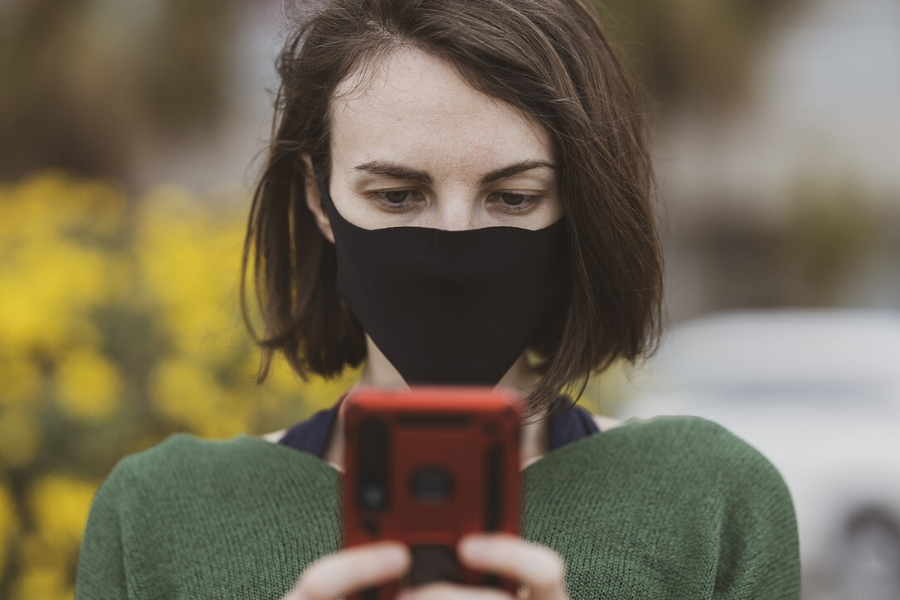
This month will mark the one-year anniversary of when COVID-19 first hit our communities in earnest and began changing all our lives. Last March, at SureVision Eye Centers we heeded the call of the American Academy of Ophthalmology and others to halt elective surgery and non-urgent eyecare visits to preserve necessary personal protective equipment and try to stop the spread of this yet poorly understood infection.
A lot has changed over the past year! This Spring case numbers are decreasing and many of our patients are registering and receiving one of the three currently approved vaccines, all of which have been shown to decrease symptomatic infection and serious illness from COVID-19. So, I’d like to take a minute to talk about where we are now as a practice, what to expect on your upcoming visit to SureVision Eye Centers, and provide some answers to the questions we get asked about how the vaccine may or may not alter your eye care.
Where are We Now?
Throughout the entire pandemic, our practice has continued to see patients with post-operative and urgent eye care needs. When it was safe to do so we resumed the care of our other, more stable patients. We are currently scheduling both routine and non-routine medical and surgical appointments in all of our offices. So, if you’ve been waiting to resume your eyecare due to the pandemic now would be a good time to call and schedule an appointment with one of our doctors.
What Can I Expect at My Eye Care Visit?
Expect the same highly personal and highly informative eye care that you’re used to from our doctors and staff… just with masks and a lot of sanitizing. At SureVision Eye Centers we specialize in full-spectrum medical and surgical eye care. Many of the patients we serve are in populations that have been deemed to be particularly vulnerable to severe complications from the COVID-19 virus due to their age or other health conditions. Thus, we take the responsibility of protecting you while in our offices very seriously. All patients, staff, and anyone entering our facilities will need to have a face mask/covering to protect themselves and others. We have hired additional friendly staff to provide an in-depth cleaning and sanitation of each exam room both before and after each patient. The vast majority of our staff have already received both doses of the COVID-19 vaccine. Our offices remain as socially distanced as possible. All of these efforts are here to protect each and every one of our patients.
Do I Still Need to Wear a Mask If I’m Vaccinated?
Yes. Millions of people have been vaccinated in the U.S. and we have growing information about the safety of the vaccines. However, much is still unknown. We know that between the three vaccines currently available in the U.S. they decrease the risk of asymptomatic infection from COVID-19 by between 72 and 95%. We also know that they significantly reduce the rate of severe infections, hospitalizations, and deaths from COVID. We don’t, however, know if they prevent asymptomatic infections or if they can prevent you from spreading COVID to someone else. We also don’t know how long the protection from the vaccine lasts. We have no idea if it wanes after 3 months, a year, 10 years, or if it lasts for a lifetime. For all these reasons it will remain very important to continue the same social distancing and mask-wear that has been shown to decrease rates of transmission. Therefore, to maintain the safety of our vulnerable patient populations you will continue to see all our staff and patients wearing masks to protect one another.
Do I Need to Postpone my Vaccination Because of my Upcoming Cataract Surgery?
No. While the supply of the vaccine is increasing, it remains scarce. If you are someone who wishes to be vaccinated, you should do so when you are offered the chance. If your vaccination is scheduled after your cataract surgery that shouldn’t be a problem. It is ok to receive a vaccine as early as the next day after your cataract surgery as there is little to no risk to your surgery. However, if your vaccine is scheduled before your cataract surgery, we recommend waiting at least one week after to have your surgery. This is primarily due to the side effects that some may experience in the days following the injection. These symptoms usually last for only 12-48 hours, but we want to make sure you are comfortable on the day of your surgery and not feeling ill, so we give that a little time to pass. If you have cataract surgery scheduled sooner than 1 week after your vaccination our staff will be happy to assist you in rescheduling your surgery to a slightly later date. Most other eye surgeries will have a similar recommendation of timeline, but our surgery schedulers can advise you with questions about your specific surgery.
How Will the Vaccine Affect My Corneal Transplant?
Many of our patients have conditions that cause clouding of the front windshield of the eye, called the cornea. This can happen for many reasons and when it does it can lead to loss of vision and may require a surgery in which their cornea is removed and replaced with tissue from a donor corneal graft. Like all organ transplants, there is always a risk that the immune system of the patient will see the new cornea as something foreign that shouldn’t be there and attack it. To prevent this, we have most all transplant patients on topical steroid eye drops to decrease their immune reaction to the corneal graft. In the past, there were some immunizations that we believe ramped up the immune system so much that they were associated with increased rates of corneal transplant rejection in the period following vaccination. For that reason, many cornea specialists used to recommend increasing topical steroid medications around the time of immunizations. To date, there are no reported cases of corneal graft rejection following COVID-19 immunizations. Therefore, for our patients with corneal transplants, we are not recommending any change in their topical steroids before or following their COVID vaccines. However, if you are exposed to COVID and develop conjunctivitis as a symptom of your infection we do recommend increasing your steroid drops to 4 times per day for 1 week and then going back down to your normal dose after that.
Hopefully, this has helped answer some of your questions about how COVID-19 and its correlated vaccines may alter your eye health and eye care. If you have another question not addressed here please schedule an appointment to speak with one of our knowledgeable staff members.


